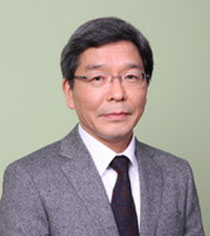名古屋大学博士課程教育推進機構(Doctoral Education Consortium, 以下、博士機構と記述)は、2018年秋に具体的な事業をスタートしました。一番の目的は、個々の大学院生に、学位をもって社会に巣立つにあたってふさわしい能力を身につけてもらい、国内外で活躍していただくことにあります。
名古屋大学には6,300名を超える大学院生が在籍しており、毎年約1,700名(うち留学生約280名)が修士学位、約460名(うち留学生約100名)が博士学位を取得して本学を巣立っています。本学大学院における教育・研究指導は、各専攻において構築されたプログラムと学位審査体制に沿って、2,000名を越す教員が担当しています。
これまで、大学院教育について、大学全体で情報を共有し、教育体系、学位認定、大学院生の支援等について議論する場はきわめて限られていました。幸い本学では、大学院教育プログラムとして、21世紀COE、グローバルCOE、リーディング大学院プログラムそして卓越大学院プログラムを展開する機会を多く得て、研究科を超えた取組が進められてきました。そうした教育プログラムの成果をふまえ、大学全体で、学習に深みをもたらすような質の高い大学院教育を進めるために、博士機構が設置されました。
修士号や博士号の取得者が活躍する場は、国内外の企業、大学や公的研究機関、国や自治体、国際機関やNGOへと広がっています。高度な知識や技能を活用する場面が増え、また国際化が進み、これまでと異なる環境で能力を発揮することが、修士および博士人材に求められています。専門分野の知識とその意味を客観的な位置付けを含めて説明する力、問題解決や課題達成に資する能力、専門以外の領域への関心と幅のある理解力、英語力、チーム形成の力、多様な文化と個性への理解力が、より明確に必要になってきたのです。
学生が巣立つ先の社会は、21世紀になって、大量生産・大量消費の産業構造から大きく変容しました。生産される物・こと・サービスは、社会の持続性の観点から選評されたり、国内外の社会的課題の達成に寄与することが求められたりします。このような社会的な視点を育てる意義が大きくなっていることもまた、大学院教育の内容に対して再考と改革を促すことにつながっています。
他方、学位認定機関としての大学は、その認定する学位の質について、研究科の枠を超えて議論したうえで整理し、国際的な通用性を改めて確認する必要があります。このことは、とくに博士人材の受入れを産業界も含めて積極的に進めてもらうためにも、必要なことです。
日本の科学・技術の進展、産業界の発展、国際的な場における活躍が緩やかとなり、国際的な比較の中で相対的な位置が低下してきていることも、注視すべき事象の1つです。意欲ある優れた学生を大学院に招き、新しい研究課題に挑戦させ、能力を伸ばす環境を整えることは、大学にとって重要な課題です。
こうした要請に応えるために、博士機構は次の項目を担当します。
- 研究科の枠を超えて、博士課程前期・後期の教育、学位認定制度、学生生活・就職状況についての情報の共有、大学としての共通の視点を確立する
- すべての大学院生に付与したいと考える技能をPhDスキルとして定式化し、その導入科目としてプロフェッショナル・リテラシーを開講する
- これまでの秀でた教育カリキュラムの中から、米国ノースカロライナ州立大学等での海外研修、産学共創教育、SDGsを含む国際情勢理解講座、トップリーダートーク等について、意欲ある大学院生向けに機会を提供する
- 各種プログラムに参加する意欲ある学生への授業料減免をはじめとする各種支援を行う
大学は、理念を提示するのみではなく、理に適った教育プログラムを編みだし、優れた修士・博士人材を世界に送りだす使命があると考えます。博士機構が目指すのは、その使命を果たすための基盤となることです。ご関係の皆さまのご理解・ご協力をお願い申しあげますとともに、よりよい実践に向けて、大学院生や教職員からのご意見をお待ちしています。
名古屋大学博士課程教育推進機構 初代機構長
前島 正義

The Doctoral Education Consortium of Nagoya University (DEC) launched its first full-scale projects in the fall of 2018. Our primary goal is to provide individual graduate students with the skills worthy of their degrees so that they can serve society better and pursue successful careers.
More than 6,300 graduate students are studying at Nagoya University. Every year around 1,700 students complete their master’s degrees (including approx. 280 international students) and around 460 students complete their doctoral degrees (including approx. 100 international students). More than 2,000 faculty members are responsible for teaching and research supervision on graduate programs in accordance with the curriculum and degree examination systems designed in their respective fields.
While Japan’s graduate schools provide less opportunities for sharing information or discussing course designs, degree qualifications or student support with each other, Nagoya University has been successfully promoting initiatives across its graduate schools such as the 21st Century COE program, the Global COE Program, the Program for Leading Graduate Schools, and the WISE Program. The DEC is expected to make the best use of these results in order to promote high-quality graduate education across the whole university in a way that brings greater depth to students’ learning.
There are growing career opportunities in Japan and overseas for master’s or doctoral degree holders, including at business and industrial enterprises, schools and public research institutions, central and local governments, international organizations and NGOs. Along with this increase in opportunities and ongoing globalization, people with master’s and doctoral qualifications are now required to demonstrate their abilities in more varied settings than ever. There is now clear demand for the ability to explain advanced knowledge and its positioning at academic forums and beyond, the ability to contribute to problem solving and target achievement, and the ability to understand a broad range of expertise with flexible interest, as well as English language ability, team-building skills, and an understanding of diverse cultures and individuals.
The society that our students join has transformed greatly from its previous industrial structure of mass production and mass consumption of the 20th century. The goods and services produced today are reviewed from the perspective of a sustainable society and they are often required to contribute to solutions to social challenges, both in Japan and overseas. The growing significance of fostering this social perspective has also encouraged rethinking and reform of the scope of graduate education.
Meanwhile, as degree-conferring institutions, universities need to review the quality of their degrees through debate that goes beyond the confines of each graduate school, and to reconfirm that the quality of the degrees they confer maintains international standard. This is particularly necessary as part of efforts to actively encourage industry and others to accept doctorate holders.
Attention must be paid to the fact that the international position of Japan has lowered slightly in recent times in accordance with the slowing down of the development of science and technology in Japan, the decline of Japanese industrial sectors and the narrowing role of Japan on the international stage. The important challenges for Japan’s universities are to encourage motivated and talented students to enroll and to develop an environment in which students can try new research agendas and stretch their abilities.
In order to meet these demands, the DEC has taken on the following responsibilities:
- Establishing a university-wide perspective on the curricula of our programs and courses, degree conferment systems, and our students’ living and career conditions, by sharing information and discussion across our graduate courses,
- Providing a framework for the PhD skills that all of our graduate students are expected to acquire, and starting a new course named Professional Literacy to introduce these skills,
- Providing further opportunities to motivated graduate students, including overseas entrepreneurial training, academic-industry partnership education, a lecture series on international politics and the SDGs, and serial talks by top leader models,
- Providing various types of support for motivated students taking part in our programs, such as tuition fee discounts and exemptions,
Having once set out a philosophy of graduate education, Nagoya University should crystalize rational graduate programs and cultivate talented people with master’s and doctoral degrees for the benefit of society. Providing a platform for fulfilling this mission is what the DEC aims at. I ask cordially for your understanding of and cooperation with the DEC, and welcome comments and opinions from our graduate students and faculty members for better practice.
Founding-Director, Doctoral Education Consortium
Masayoshi MAESHIMA














